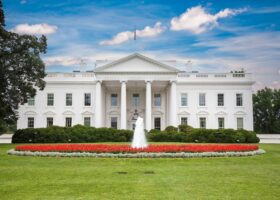Poll shows Seattle voters seek bolder remedies from failed extreme policies
October 18, 2024
A new survey of Seattle residents reveals the public is becoming more optimistic about Seattle’s future after voters in 2023 replaced extremist city councilmembers with practical moderates, who thus far are keeping their campaign promises on public safety and not raising taxes.
The numbers have improved enough for one to wonder whether the public would like to see the council move faster and bolder to reverse the damage created when extremists controlled the council.
Last week the Seattle Metro Chamber of Commerce released the results of its 2024 Index survey of 700 voters which revealed that:
- 48% of Seattle residents believe the city is moving in the right direction. (52% replied “wrong direction”).
- This is up 13% from just six months ago. (35% right direction – 61% wrong direction).
- Only 23% were optimistic about Seattle in March 2022, when the impact of extreme progressive policies was causing the most problems (23% – 76%)
This optimism is the result of Seattle voters making their voices heard last November with five of the seven city council districts electing a new, more moderate members focused on commonsense solutions to the council (and moderate Tanya Woo was appointed to the “at-large” seat previously held by progressive Councilmember Teresa Mosqueda, who was elected to the King County Council). Each of the six new members committed to being tougher on crime, supporting police officers, not raising taxes even higher, and reversing the city’s self-destructive and costly attacks on employers.
Last March there was a slight 2% increase in the right track responses after the new councilmembers were sworn in. This reflected a slightly more positive attitude with the new members, yet many Seattle voters withheld support for they have been misled before by councilmembers’ campaign promise. In 2019, candidates Lisa Herbold, Dan Strauss, and Andrew Lewis all promised in 2019 to increase police funding as they sought votes. Yet in 2020, they each caved to the illegal rioters’ demand to reverse their position and vote instead to defund the police.
Yet the more recent large increase in hopefulness was due to the new council matching their campaign promises with council actions. Councilmembers relieved many people’s concerns by passing 11 relatively minor public safety measures and went through the initial stages of its budget process without raising taxes (often over the lone dissenting vote of Councilmember Tammy Morales who was one of the primary architects of the council’s defund the police actions and its numerous tax proposals which have caused businesses and taxpayers to flee the city).
But the biggest change from the council appears to be how the members interact with the small, yet very vocal crowd of progressive protestors who used to control the council by demanding the legislative body enact the reckless laws which resulted in skyrocketing crime rates, police staffing at dangerously low levels, companies closing or moving away, homeless numbers increasing, and record-setting drug overdose rates.
Where former Councilmember Kshama Sawant used to illegally allow the radical protestors to enter city hall when it was closed or lead them in rebellious chants in the council chambers, the new city councilmembers have disruptive protestors arrested and the new Seattle City Attorney Ann Davison has them prosecuted.
As new Councilmember Rob Saka said, “That might have played before in that last council, not today.”
While these actions are vast improvements over the radical anti-police agenda of the previous council, the 13% increase in optimism does indicate strong voter approval of the council’s more friendly approach to law enforcement and employers. Yet should Seattle residents be demanding more of this council to accelerate the hiring of more police officers, lifting irresponsible restrictions on arresting and charging criminals, and encouraging businesses to not only stay in Seattle, but also to move back, especially Downtown?
As we have seen with the increase in crime and homelessness rates, and retail businesses continuing to flee Downtown, the damage caused by Councilmembers Sawant, Herbold, Lewis, and others, has been long lasting. The sooner commonsense policies replace their failed agenda, the quicker Seattle can return to being one of the most livable cites in the country to live and work.
Other interesting findings in the Chamber’s Index include:
- With many of the homeless being rounded up and placed out-of-sight in unsafe emergency housing units without any addiction/mental health treatment, the homeless crisis (37%) has been replaced by the increasing crime rates (41%) as Seattle residents’ top concern.
- Approximately 75% believe that improving the business climate would improve the quality of life in the city, while 69% believe government actions have hurt Seattle businesses.
- 70% stated that reducing spending, and not raising taxes, should be the council’s priority to eliminate the $250 million deficit.
- 75% of Seattle voters state that removing the open-air drug markets would improve the city’s quality of life.




